Ukraine's Volodymyr Zelenskyy (left) proposed co-producing arms with the countries of the Western Balkans like Aleksandar Vucic's Serbia

Arms for Ukraine: Can the Western Balkans help?
At the Ukraine-Southeast Europe summit in Tirana, Albania, in late February he went one step further and suggested co-producing arms with the countries of the Western Balkans. "I propose a joint forum for the defense industry between Ukraine, the Balkans and our partners," he said.
This begs the question as to whether the Western Balkan region is technically capable of fulfilling Zelenskyy's wish. And if it is, will Serbia, which is known for having strong political ties with Russia, be willing to do so?
"While Western Balkan countries do not have a considerable production of major arms, they do have a number of ammunition factories, and ammunition is what Ukraine is interested in," says Katarina Djokic, researcher at the Stockholm International Peace Research Institute's Arms Transfers Programme.
"We have little reliable data on how much ammunition they could produce annually — and it is surely far from Ukraine's current needs — but as Ukraine seeks as much ammunition as it can get, the interest in the Western Balkans' production is not surprising," said Djokic.
The latest report from the Southeastern and Eastern Europe Clearinghouse for the Control of Small Arms and Light Weapons (SEESAC) in 2021 says that Serbia is the leading arms and ammunition exporter in the region, accounting for 65.79% of its total exports, with profits of some $1.3 billion (€1.2 billion). It is followed by Bosnia-Herzegovina, which accounts for 31.75% of the region's total exports.NATO recently spent over €50 million ($54.26 million) modernizing the Kucova Air Base in Albania to bolster its presence in the region
Where does Serbia stand on arms for Ukraine?
Although Serbian President Aleksandar Vucic greeted President Zelenskyy warmly at the Tirana summit, he made no official statement on Zelenskyy's request for joint arms production.
The only statement in this respect came from Albanian PM Edi Rama, who told journalists that President Zelenskyy "spoke to us about the possibility of cooperation, which means investing, production and cooperation, and of course everyone said yes, not only Albania."
Although Serbia has condemned Russia's war in Ukraine, it has never imposed sanctions on the country.
Katarina Djokic, herself a Serb, told DW that Serbia's foreign and security policy position "could be described as opportunistic rather than oriented towards Russia."Albanian PM Edi Rama (right) told journalists in Tirana that 'everyone' in the Western Balkans region — and not just Albania — was in favor of cooperating with Ukraine on arms production
According to Djokic, when US documents leaked last year indicated that Serbia was ready to export arms to Ukraine — or was already doing so — the Serbian president ordered a temporary suspension of all ammunition exports, officially to prioritize supplies to the Serbian Armed Forces, but most likely as a damage control exercise.
"Judging by his recent statements, the 'we cannot export ammunition because we need it' argument is still being used, but it does not mean that Serbian-produced ammunition will not find its way to Ukraine."
What could Albania do?
Ermal Jauri, current chair of the George C. Marshall Albania Alumni Association, sees the recent modernization of the Kucova airbase in Albania with NATO funds as the perfect example of what could be done.
He says that Albania's former ammunition production facilities and military bases are partially functional and certified in accordance with GOST quality standards, which are adopted primarily by the countries of the CIS.Ermal Jauri says that with the right investment, Albania's former ammunition production facilities and military bases could return to full functionality within a short period of time
"If Albania gets involved in such an initiative, it would be taking a big step towards improving the security of the country and the region," he went on.
With or without EU support?
Josep Borrell, the EU's top diplomat, earlier this year asked member states to temporarily halt exports of weapons to countries other than Ukraine. "Doing nothing is not an option," he said, stressing that "EU member states should find ways to increase support to Ukraine, particularly the delivery of badly needed ammunition."
So, which European countries are in a position to help Ukraine and the Western Balkans produce arms together?
"The German government has shown an interest in financing ammunition procurement for Ukraine from non-EU countries. France has also indicated it would be open to buying non-EU-produced ammunition for Ukraine," says Djokic. "With both Berlin and Paris on board, using EU funds seems more likely, too."
According to Ermal Jauri, such an initiative cannot be realized without the support of the Western Balkans' NATO and EU allies. "This is not because the allies are unable to pursue the production of ammunition and combat equipment themselves, but their support for creating such an idea in the Western Balkans, I think, would significantly cut the cost of producing this ammunition and military equipment," he said.
Edited by: Aingeal Flanagan
13 January 2024
U.S. Arming Separatists in Serbia...U.S. Approves $75M Sale of Javelin Missiles to Kosovo
- Vučić asserted this month that Serbia has one of the strongest armies in the Balkans, noting the "great number" of tanks it had received from Russia before its invasion of Ukraine.
- He pledged to continue buying arms from China and other countries, including anti-aircraft systems, fighter planes and drones.
Serbia expresses 'deep disappointment' as Kosovo seeks purchase of US anti-tank missiles
The U.S. State Department said later Thursday that it approved the possible sale of the 246 missiles and related equipment to Kosovo for an estimated cost of $75 million.
"This proposed sale will support the foreign policy goals and national security of the United States by improving the security of a European partner which is an important force for political and economic stability in Europe," the U.S. State Department's Bureau of Political-Military Affairs said.
26 December 2023
Kremlin Speaks Out on Attempted Serbian ‘Maidan’...The unrest was “evidently” stirred by third parties, spokesman Dmitry Peskov says
Top stories
25 Dec, 2023 15:42
Kremlin speaks out on attempted Serbian ‘Maidan’
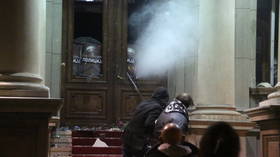
- Serbia has been hit by a string of mass protests following the parliamentary election of December 17, in which the ruling Serbian Progressive Party (SNS) won a decisive victory.
- The opposition Serbia Against Violence (SPN) coalition, which is pro-EU, has made allegations of “vote theft.”
- Speaking to the Russian media, Kremlin spokesman Peskov said there was nothing to suggest irregularities in the Serbian elections, explaining that observers “did not record any violations that could cast doubt” on their legitimacy.
Moscow maintains a policy of non-interference in the affairs of other countries, the Kremlin official stressed, adding that this particularly applies to Russia’s “ally and partner” Serbia.
“Everything that happens in the country is Serbia’s own business. We have never interfered in the internal affairs of other countries and do not intend to,” Peskov said.
Serbian President Aleksandar Vucic denounced the riot in Belgrade as an attempted “color revolution” – a term commonly used to describe movements funded and organized by Western countries, usually the US, aimed at overthrowing leaders opposed to Washington’s interests.
- Vucic initially thanked unnamed “foreign services” for warning Belgrade about “exactly what the thugs were preparing.”
- Serbian Prime Minister Ana Brnabiс revealed that Belgrade had received vital intelligence from Moscow on the protesters’ plans.
- “I feel that it is important, especially tonight, to stand up for Serbia and to thank the Russian security services who had that information and who shared it with us,” Brnabic told TV Pink.
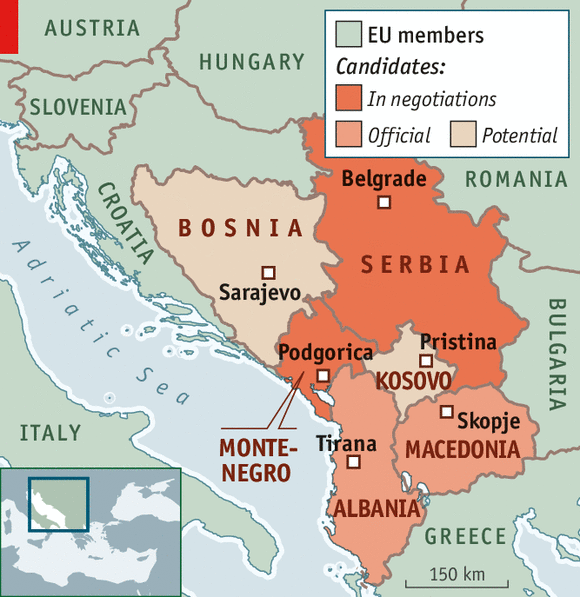






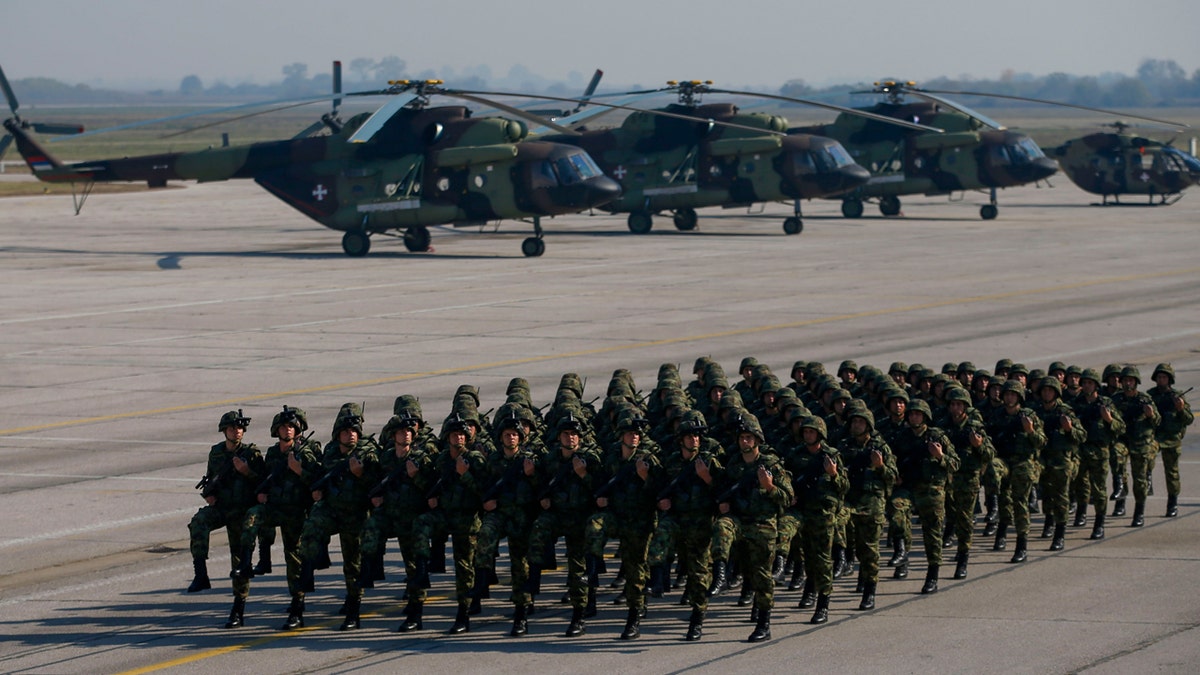
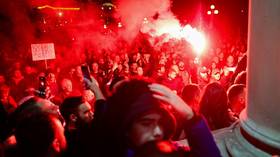
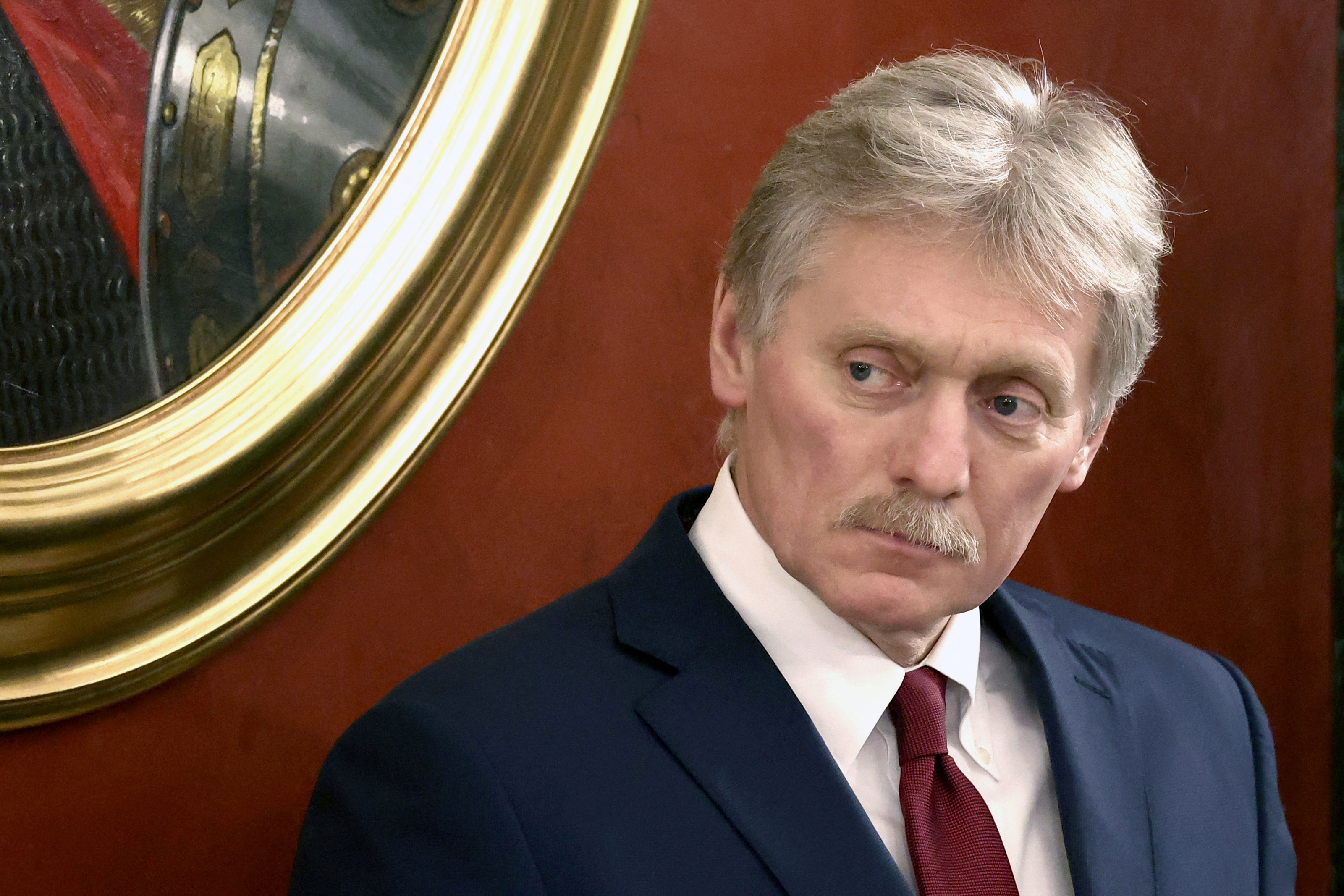
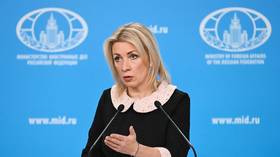

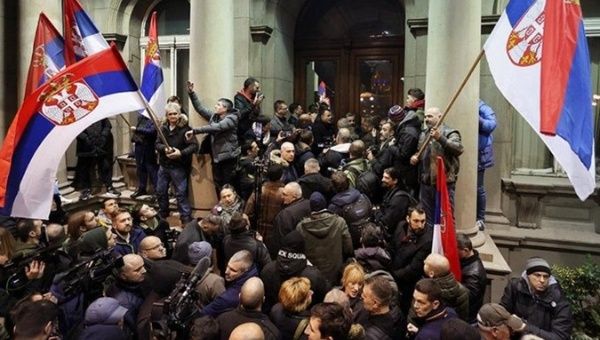


No comments:
Post a Comment